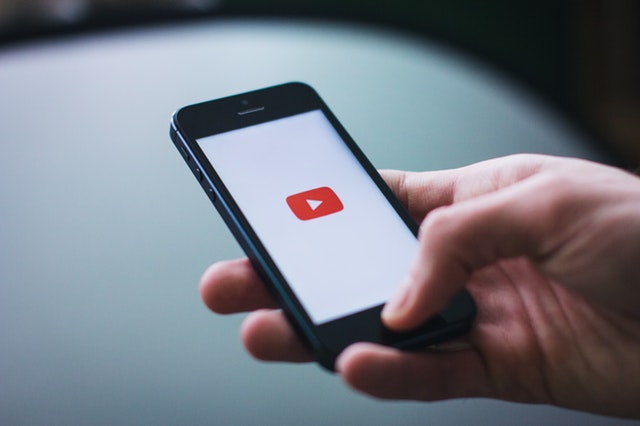By Melinda Maryniuk, MEd, RD, CDCES
Over the past decade, thousands of food and fitness apps as well as wearable digital devices have become available. We’ve known from research for some time that keeping track of behaviors (what you eat, frequency of exercise) can help shape and reinforce behaviors in a positive direction. However, previous tracking tools such as plastic pedometers that would clip-on to your waist band (and end up in the toilet) and paper notebooks in which food logs were kept, were inconvenient and cumbersome for many.
Digital tracking tools include apps which can be used on your smartphone or tablet as well as your desktop computer, as well as wearable devices such as a fitness tracker that counts steps. While most people find the convenience of tracking on a smartphone appealing (ever notice how nearly everyone who rides a bus or a subway is staring at a screen?) – if you are one of the few people who actually do like old-fashioned paper records, there is no need to change! Choose the style that is best for you.
As you think about tracking health behaviors to help with weight loss, consider how you would answer the following questions.
Why track?
- Increases awareness. When you make a habit of tracking behaviors, such as recording what you eat, the steps you take, the amount of sleep you get, you become more self-aware and thus, gain more insights into behaviors that are working in your favor or those that may need changing.
- Increases motivation. Tracking helps you measure and be inspired by your progress.
- Helps set realistic goals. When you have a better picture of your usual behaviors, you can set goals that you can actually achieve. For example, you may wonder “How many steps should I walk a day?” A realistic goal might be, 1000 more than your “usual” (which you’ll learn from tracking steps for 3 days in a row and taking an average).
- Share success and seek support for solutions. Many tracking tools allow information to be shared with your healthcare providers for feedback. Some are designed to share with friends …either friends you know or a community of like-minded individuals with similar weight challenges. It’s a great way to get encouragement, support, advice and recommendations.
What to track?
- Exercise. Fitness trackers can measure a variety of things including steps taken, distance covered, time spent and calories burned. Some will also track time spent sitting and will alert you when it’s time to stand up or move! While wearable fitness trackers have become very small and discreet, you might be happy with the step-counter that is part of most every smartphone.
- Food intake. Many can conveniently keep track of calories, nutrients (such as carbs, if that’s important to you), and water intake and compare your actual to a goal. Many apps offer convenient features such as a bar code scanner (to look up food information from a specific brand), restaurant food information, and the ability to post photos of meals eaten.
- Weight loss. Enter your weight goal. Log in your weekly (or daily) weight so you can track your progress. Remember, weight loss that sticks can feel slow. A good goal is 1-2 pounds a week. Know there will be weeks when it plateaus.
- Other healthy behaviors. Consider using an app if you’re working on improving sleep habits, quitting smoking, or need prompts to help you remember to take medicines. No matter what the health behavior you’re struggling with – there is probably an app for that!
To pay or not to pay?
- While many apps are free, there may be charge for more involved services and features. Don’t dismiss an app just based on cost – as the service, such as getting text messages or phone calls from a personal coach, might be just what you need to help you get on and stay on track. Many will allow you to sign-up for a short term trial so you can evaluate if the service works for you.
How to get the most out of tracking?
- Be honest. Records and tracking is most helpful when you provide honest, realistic detail. The more accurate you are, the better you can identify small changes that could lead to big results. Don’t expect perfection. Celebrate the fact that you keep records and worry less about whether you think what you are recording is “good” or “bad”. All information is helpful!
- Be timely. It’s best to log your food into an app as close to the time you’ve eaten as possible. If you wait until the end of the day, you’re likely to forget something.
- Be consistent. If you’re new to tracking, set a goal for yourself to gather baseline data and better understand your usual habits by recording for at least 5-7 days. If tracking every day feels overwhelming, maybe you do 3 days a week or the first week of every month to follow patterns and help you stay on track.
- Be reasonable. Don’t expect perfection. Don’t beat yourself up if you get off track. Do celebrate the small successes and get back on track if you have a set back.
- Use the information. Take time to look at what you track. What can you learn from it? Do you notice trends about when exercising is easier? When eating is more of a challenge? When weight loss plateaus? You might be able to do your own problem-solving or share your records with your healthcare provider to come up with solutions together.
To find a physician near you who specializes in weight management, click here.
Get a weekly text to help you stay on track with your health goals! Click here to sign up.
This article was sponsored by Novo Nordisk Canada. All content is created independently by My Weight – What To Know with no influence from Novo Nordisk.

